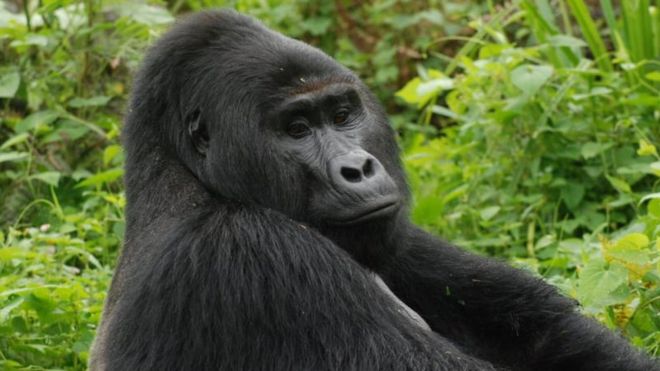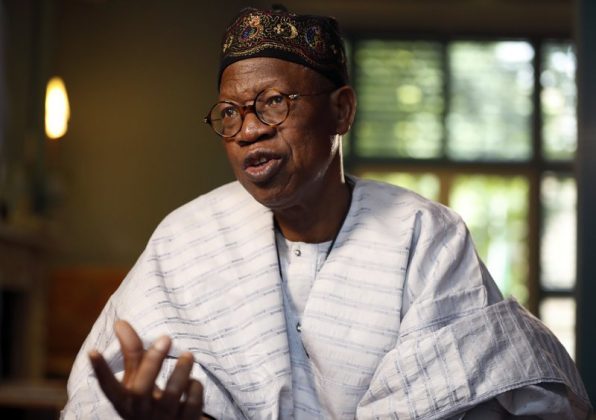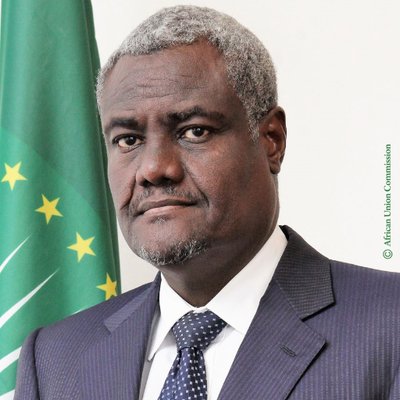
Martins Oloja, renowned journalist based in Nigeria
Some lesson notes from Weah’s Liberia By Martins Oloja
I went. I saw. And I wept for Liberia. I also wept for the new President, George Weah who is making the young and the old to see hope again. There was some art to find their minds’ construction in their faces: they see “hope of a better tomorrow”, which Kenya’s Ngugi Wa Thiong’o says, “is the only comfort you can give to a weeping child”. But there was no art to warn the excited and hopeful youth that, “blessed are they if they are hopeless, for they shall not be disappointed in 2023”.
Expectations of the youth (there were many of them) at the Samuel Doe Stadium the resourceful Chinese improved for them are sky high. They expect the ace footballer to score quick goals that can make them happy again. The Big Mama’s 12 years in the saddle did not deliver some basic needs that have long eluded the war-torn country. You could see sorrow, fear and anxiety that Alan Paton described in his classic, Cry the Beloved Country. Facts inside Liberia vividly capture this: their sorrow in the war time turned to anxiety (after the war). But 12 years of peaceful democracy the ‘big mama’ from the Bretton Woods system led, failed to defuse the bogeyman always known as fear, yes fear of remaining poor forever.
You could see all over them the influence of extreme poverty that has desecrated their humanity. Everywhere you go in Liberia, those who know will tell you frankly that they know the only reason they cannot make progress even after the war: inscrutable lack of political will to deal decisively with the ubiquitous bogeyman called corruption.
Some party leaders at the inaugural presidential luncheon after the swearing in at a tent inside the stadium confirmed to me that the greatest disappointment with President, ‘Mama Ellen’ was her failure to deal with corruption as she promised so loudly 12 years ago.
One of them, a woman leader (name withheld) told me angrily when she was supposed to be enjoying her meal that the, “old woman from Harvard in America, their America” should just bury herself in shame that the 12 years she spent could be called “the years of locusts, yes the years that locusts ate…she even involved her son in an oil block scandal” that she could not investigate, my big brother from Nigeria have you heard?”.
It will be recalled that the voice of Africa’s first female President was quite towering on January 16, 2006 when she mounted the podium to deliver her first-ever inaugural address to Liberians. In her address, Ellen Johnson-Sirleaf made a solemn pledge in these lines: “…Fellow Liberians, we know that if we are to achieve our economic and income distribution goals, we must take on forcibly and effectively the debilitating cancer of corruption. Throughout my campaign, I assured our people that, if elected, we would wage war against corruption regardless of where it exists, or by whom it is practiced…Today, I renew this pledge. Corruption under my Administration will be the major public enemy. We will confront it. We will fight. Any member of my administration who sees this affirmation as mere posturing or yet another attempt by another Liberian leader to play to the gallery on this grave issue should think twice. In this respect, I will lead by example….”
Those were the words of former President Ellen Johnson-Sirleaf. Unfortunately, after 12 years, this affirmation by Madam President became a mere bluff with corruption winning the war and becoming even more entrenched in her government than ever before. Transparency and accountability became public taboos throughout the first African female president’s administration.
As a writer for Global News Network, (GNN) Liberia put it, “Instead of corruption becoming “public enemy number one” as promised by EJS, it became “public friend number one” as a result of her refusal to firmly demonstrate ‘political will’ and maintain an atmosphere of zero tolerance for corruption…”
Whenever two or more were gathered in the name of the new and old administration in Monrovia before and after inauguration of Weah, it was the failure of the Sirleaf’s administration and citizens’ high expectation they were discussing. Most discussants were saying Mama Ellen’s failure could be rightly attributed to unbridled corruption, notably alleged mass looting of state resources mostly by her cronies and acolytes.
Everyone and even the media continue to harp on the fact that President Sirleaf’s ‘war’ on corruption was feeble, cosmetic and pretentious. There is a striking similarity between Nigeria’s pre-2015 and today’s Liberia. Most people feel that it is time for the new government to institutionalise transparency and accountability in public service. Anything to the contrary would also be Weah’s undoing of a pro-poor government that he has promised.
And so accordingly, the only African Ballon D’or winner so far last Monday promised in his inaugural speech to tackle corruption before he called on the business community to invest in the country. Part of his words: “It is my belief that the most effective way to directly impact the poor, and to narrow the gap between rich and poor, is to ensure that public resources do not end up in the pockets of Government officials. I further believe that the overwhelming mandate I received from the Liberian people is a mandate to end corruption in public service. I promise to deliver on this mandate. As officials of Government, It is time to put the interest of our people above our own selfish interests. It is time to be honest with our people. Though corruption is a habit amongst our people, we must end it. We must pay civil servants a living wage, so that corruption is not an excuse for taking what is not theirs. Those who do not refrain from enriching themselves at the expense of the people – the law will take its course. I say today that you will be prosecuted to the full extent of the law….”
In the same vein, Transparency International & Centre for Transparency and Accountability (CENTRAL) have called on the new government of President Weah on the platform of Congress for Democratic Change (CDC) “to follow through on commitments to clean up government and tackle corruption”. In Liberia, there are common open discussion points on judicial corruption the last administration also failed to address.
In Liberia, I met the country’s former interim president Professor Amos Claudius Sawyer who also told me that corruption remains a huge challenge in the country. He confirmed to me that after all, there is evidence of democratisation and sustainable peace as about 64 per cent of senators were thrown out in the last elections. But he noted that civil service agency is still not an independent institution that can assist in delivering service to the people.
According to the Professor, the unwieldy civil service remains under some strange political control. An amendment bill to remove the bureaucracy from strict political control (as the constitution provides) is said to have been with the legislature for a long time. It has been curious why the Liberian lawmakers have been lethargic about a law (amendment) that can change the country’s story from waste to wealth.
This is another clear lesson that you cannot boast of fighting corruption in any jurisdiction if the bureaucracy used as a weapon to perpetrate it is left unreformed. Nigeria, for instance, has consistently ignored this suggestion about the expediency of reforming the civil service within the context of fighting corruption. In Liberia as in Nigeria, 73 per cent of the budget is also used for recurrent expenditure, notably to pay the huge wage bill of the grossly inefficient civil servants. Yet President Weah in his inaugural address, touched on the expediency of enhancing the civil service reward system through “living wage” to prevent corruption in the public sector.
Nigeria Still Missing In Liberia’s Politics and Business
I noticed in Liberia that Nigeria that reportedly spent hundreds of millions of dollars and lost hundreds of soldiers and journalists in Liberia’s war was not acknowledged in Weah’s address on January 22. Curiously, President Muhammadu Buhari, widely expected as a giant in West Africa, as published in their newspapers a day before the inauguration could not attend. And the Vice President, Professor Yemi Osinbajo who represented him could not be acknowledged because he surprisingly arrived the venue very late (at 11.55am) while the swearing-in ceremony legally slated for 12 noon was on. China that has been strategically involved in rebuilding Liberia was remarkably acknowledged. Note this: Ghana is generally believed to be the new strategic friend of Liberia in the West Coast. Ghanaian President, Nana Akufo-Addo was there with his colleagues from Mali, Gabon etc. Besides, it was only Akufo-Addo who attended the presidential inaugural ball where he (Akufo-Addo) spoke as a strategic partner – where Nigeria was unfortunately missing.
Meanwhile, did you also notice another strategic lesson that the Speaker of the Liberia’s House of Representatives, Emmanuel Nuquay announced on the inauguration day at a luncheon the legislature (the official organiser of presidential inauguration) hosted for the new president at a tent inside the stadium that Weah’s ministerial nominees would begin to receive attention the following day? Is anyone reading this presidential sense-of-urgency story inside Nigeria’s Aso Villa where a bane called presidential procrastination is a permanent resident?
Visible among consequences of corruption in the poor country are two critical infrastructure deficits: poor electricity supply and water even in the nation’s capital Monrovia. On Sunday 21 January, I passed through a poorly lit major road in the capital and a resident pointed at the University of Liberia premises. Behold there was no electricity supply in the university as darkness enveloped Liberia’s ivory tower. Similarly, you would see truck pushers selling water in plastic containers to residents of the nation’s capital, Monrovia. Monrovia is still a heart of darkness in the night. Water supply in the capital is still a huge concern to residents too despite publications about some World Bank loans. That is why the only tangible feat for big mama’s 12 years is peace and she got a Nobel Prize for it. But Liberians shall not live by Nobel Peace Prize alone…
A foreign investor who has spent more than three decades in Liberia confirmed to me in a casual discussion of the development challenges of the country that the non-availability of potable water in Liberia and indeed in Monrovia was one of the reasons Ebola disease was intractable and deadly in the country. According to the source whose family owns one of the oldest businesses in the country, healthcare delivery too has been a huge challenge in the country. “It is incredible that during the Ebola pandemic, only one ambulance was available and even rickety taxi-cabs were being used to convey dead bodies for burial, which partly explained why the spread of the deadly disease was uncontrollable. Really, there was no water to handle basic things including washing of hands”.
The lesson here is that unless there is political will and skill to tackle corruption in any polity, sustainable development will continue to be a mirage. Nigeria is suffering and smiling from consequences of failure to deal with corruption over the years. Article from The Guardian.




Recent Comments